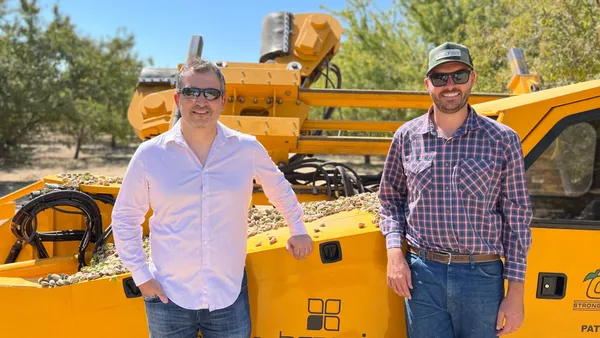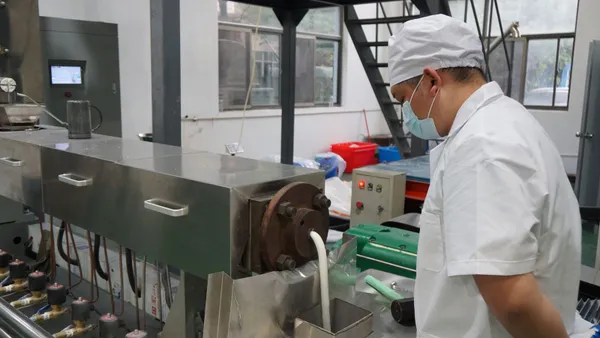Dive Brief:
- A draft agreement from the COP28 climate summit makes no specific mention of agriculture’s role in lowering emissions, sparking criticism from environmental groups and major food companies including Nestlé.
- The global stocktake draft agreement released Dec. 5 does not include recommendations for countries to consider food in climate action plans. More than 120 food companies and organizations signed a letter to U.N. negotiators calling the draft “a far cry from what’s needed.”
- The “global stocktake” is a process where nations review their climate progress on meeting Paris Agreement goals and agree on how to curb rising temperatures. A stocktake agreement will be released at the end of COP28 and is meant to inform countries’ climate action plans through 2050.
Dive Insight:
Although food has garnered outsized attention at COP28, it received barely a passing mention in negotiators’ draft plan to encourage countries to scale climate action.
Food is mentioned just once in the 24-page draft of the global stocktake agreement, which is the most anticipated document to come out of the U.N. climate summit. The text encourages countries to “foster climate resilience and low greenhouse gas emission development in a manner that does not threaten food production.”
The global stocktake process, which occurs once every five years, is meant to provide countries with a blueprint for how to reduce global temperatures in line with goals reached under the Paris Agreement. The stocktake includes a number of potential pathways for negotiators to address climate change across industries. The current working draft contains a number of proposals on fossil fuels, for example, ranging from a complete phase-out to no action.
Countries will use the global stocktake to inform updated climate plans, which they will be required to submit to the U.N. in 2025.
As nations race to keep rising temperatures below a crucial 1.5C threshold, more countries have committed to taking steps to lower food systems emissions. A group of 134 countries signed onto a declaration pledging to include agriculture within their climate adaptation plans.
Still, farm groups, food giants and environmental groups said in a letter to negotiators that nations will be unable to reach their climate goals “without more ambitious, comprehensive, and equitable climate action on food.” Including food in the global stocktake is a crucial step to encouraging even more countries to take ambitious action around agriculture, stakeholders said.
“To be clear: the global stocktake cannot deliver its mandate and build a resilient, equitable future for all without considering food systems as a solution for both mitigation and adaptation,” according to a letter signed by businesses including Unilever, Nestlé, Danone and PepsiCo.











